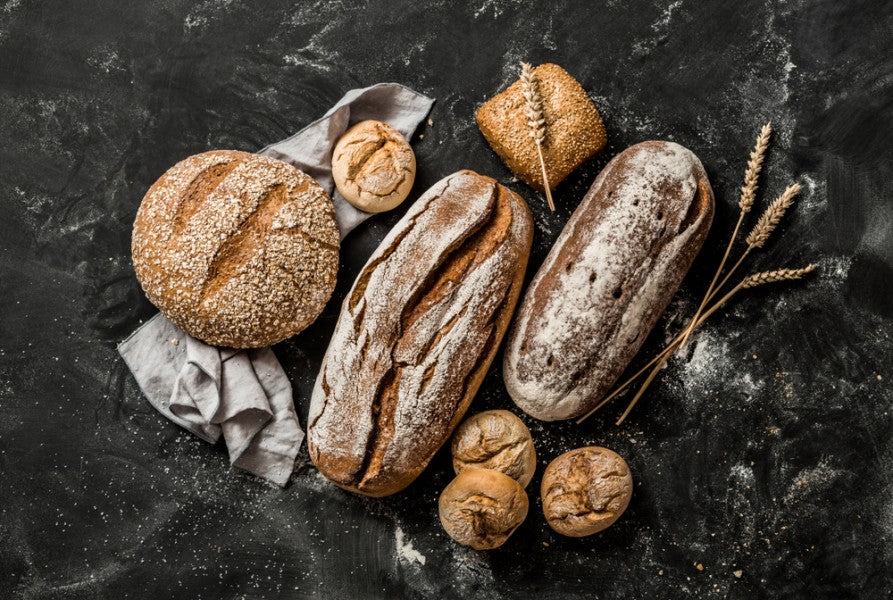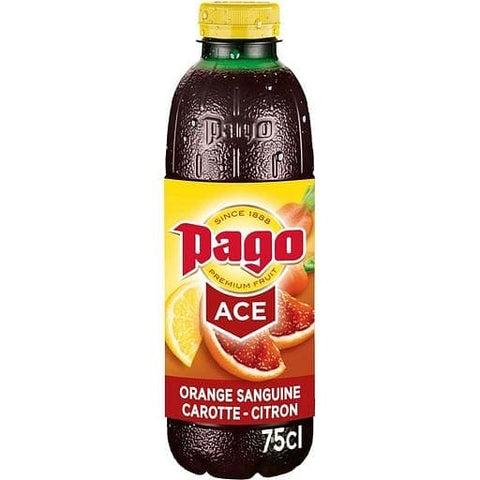French bread, with its iconic baguette and rich tradition, is a symbol of French culture and craftsmanship. From neighbourhood bakeries to the diverse regional specialities, French bread represents a commitment to quality, flavour, and tradition. It is not just a staple food, but a cherished element of daily life, enjoyed with reverence and pleasure.
Traditional bread of France, so special?
French bread holds a special place in the country's culinary heritage, with the iconic "baguette" at its center. Beyond its popularity, the history of bread in France is deeply rooted in tradition, craftsmanship, and cultural symbolism. In this article, we will explore the significance of this traditional French bread, focusing on the French baguette and delving into the diverse world of bread in France.Culture and craftsmanship of French bakeries
The baguette, with its long, slender shape and crispy crust, is perhaps the most recognisable symbol of French bread. It has become synonymous with French culture and is a staple on tables across the country. The origins of the baguette date back to the 19th century when the French government regulated the length and weight of bread. Today, the baguette remains an essential part of daily life in France, enjoyed freshly baked and used as a versatile accompaniment to meals.French traditions have significantly influenced bread-making craftsmanship in British bakeries, showcasing the enduring global appeal of French bread. Techniques such as artisanal baking methods and a focus on quality ingredients have crossed borders, enriching British bakery culture with the flavours and traditions of France.
What is the history of bread in France?
- Ancient times: early settlers cultivated wheat and grains; Roman era improved baking techniques.
- Medieval period: bread became a staple; guilds regulated baking standards.
- Renaissance: advances in milling and technology; white bread for wealthy, coarse bread for lower classes.
- 18th century: bread shortages led to government regulations; French Revolution highlighted bread's social importance.
- 19th century: invention of the baguette; new laws for daily bread production.
- 20th century: industrial bread production and resurgence of artisanal methods; 1993 "Décret Pain" law supported traditional baking.
The regional bread varieties in France
The regional bread varieties in France include:- Baguette: iconic long, thin loaf with a crispy crust.

- Boule: round, crusty bread often used for daily meals.

- Pain de campagne: country-style bread, often with a hearty crust and chewy texture.

- Pain poilâne: made from stone-ground flour, known for its dense texture and nutty flavor.

- Fougasse: flatbread with slashes and often flavoured with herbs or olives.

- Pain de Mie: soft, square-shaped sandwich bread.

- Pain complet: wholemeal bread, denser and more nutritious.

- Pain bâtard: shorter, thicker version of the baguette.

- Pain aux noix: bread made with walnuts, known for its rich flavour.
What unique flavours do the regional bread varieties in France offer?
These regional breads highlight the true taste of French bread, the flavours, techniques, and local ingredients distinct to each area, adding depth and diversity to the rich tapestry of French bread culture.
The daily consumption of bread in France
In France, bread is not just a food but an integral part of daily life, accompanied by its own rituals. The baguette is often bought fresh daily and enjoyed at meals or as a snack throughout the day. The traditional way of carrying a baguette is under the arm, a practice that has become an iconic image associated with French culture. Breaking off a piece of bread and savouring it with butter, cheese, or other accompaniments is a cherished ritual that embodies the French appreciation for simple pleasures.What are the principles of the artisanal bread movement in France?
In recent years, there has been a resurgence of interest in artisanal bread-making in France. Artisan bakers, inspired by traditional methods and eager to preserve the integrity of bread, have adopted a hands-on approach to baking. They favour natural fermentation, slow rising times, and the use of high-quality local ingredients. This movement emphasises the importance of small-scale production, artisanal skills, and the unique flavours resulting from traditional bread-making techniques.How is French bread integrated into social and traditional life?
French bread goes beyond its culinary significance and carries cultural and social connotations. Sharing a loaf of bread is considered an act of hospitality and camaraderie, reflecting the importance of community and conviviality in French culture. Bread is often present at important occasions, such as weddings and religious ceremonies, where it symbolises abundance, sustenance, and tradition. French idioms and expressions involving bread further underscore its cultural importance and the role it plays in everyday language.The best ways to enjoy French bread
Tartines, open-faced sandwiches, are a popular way to enjoy French bread. These simple yet satisfying creations highlight the quality of the French bread and complement the toppings. From the classic tartine beurre (bread and butter) to more elaborate combinations of cheese, charcuterie, vegetables, and spreads, tartines offer a customisable and delicious culinary experience. They are often enjoyed as a light meal, snack, or even as part of a traditional French breakfast.How has French bread influenced global cuisine including the UK ?
French bread has left a distinct mark on modern British cuisine, evident in the menus of renowned London restaurants that proudly feature French bread varieties. From traditional baguettes to artisanal loaves, French bread enhances dishes across the UK, blending culinary traditions and enriching the dining experience with its unique textures and flavours.
Paul UK, a well-established French bakery chain in the UK, is renowned for its delicious authentic baguettes and pastries.
The influence of French bread has transcended national borders, with baguettes and French-style breads being enjoyed worldwide. Bakeries and pâtisseries in various countries, including the UK, strive to recreate the distinctive qualities of French bread, ensuring that people around the globe can experience its texture, flavour, and cultural significance. This international appreciation is a testament to the enduring appeal and global recognition of French bread as a culinary icon.
So, the next time you bite into a fresh baguette or explore a french bakery in the UK, take a moment to appreciate the centuries-old heritage and artisanal skill that have contributed to creating this beloved symbol of French cuisine.





